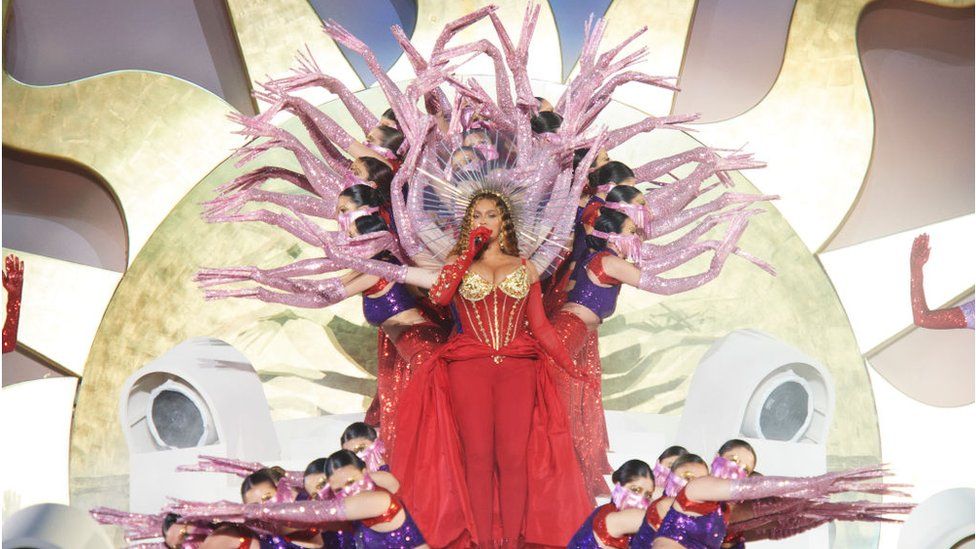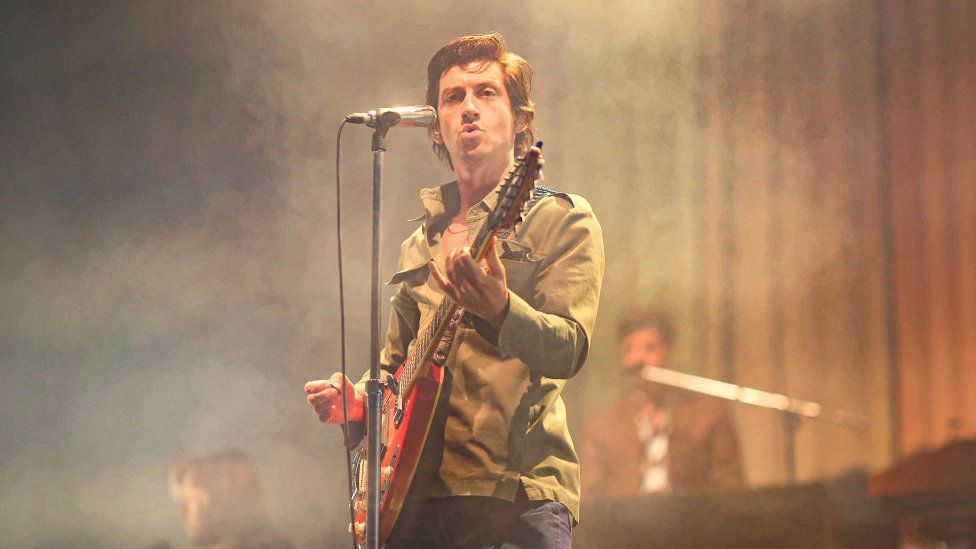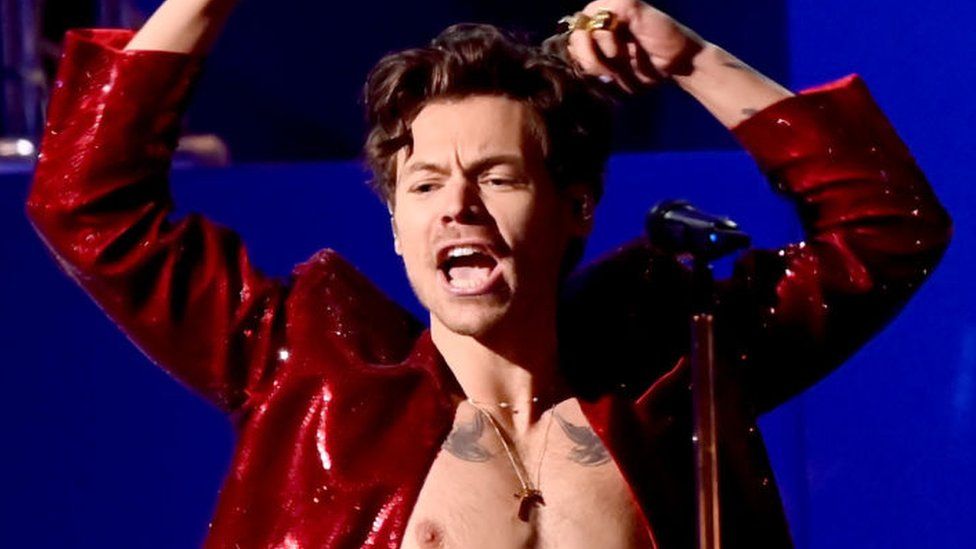In 2022, Wembley, the UK's largest stadium, hosted as many gigs as it did football matches.
There were 16 sold out concerts from the likes of Coldplay and Ed Sheeran and 1.3 million tickets purchased.
Demand is so great for Beyoncé's 2023 tour that Tottenham Hotspur has breached its licence by adding an extra tour date at its stadium.
They now have to submit a planning application to Haringey Council to ensure the show can go ahead.
Pioneered by the Beatles in 1965, stadium tours have previously been the reserve of pop's biggest stars: Michael Jackson, Madonna, Eminem - but recently, they've been overtaking arenas as the number one choice for big tours in the UK.
'A big gamble
"Why are artists choosing us? It's a scale thing," says Steve Davidson, chief operating officer at Sunderland AFC.
"The cost of putting on these big worldwide tours is enormous, so they [artists] have to sell out bigger venues in order to make it pay," he adds.
Mr Davidson says the Stadium of Light can hold 60,000 people at a typical concert, which has helped attract artists like Beyoncé and Pink to the north-east of England this summer.

"We've got space and we're in the city centre. That's attractive to [concert] promoters," Mr Davidson says.
He also notes that artists are putting more effort into staging and production, which on a basic level means travelling with lots and lots of trucks.
"Some artists are coming with 90 HGV trucks - we've got space to host them all," he adds.
Beyoncé fans have been predicting online that her Renaissance World Tour stage could be an estimated 174ft (53m) wide and 84ft long, excluding its runway and additional smaller stage.
Compare this with her last arena tour in 2013, when the main stage was less than half the size of her predicted stadium one - 76ft by 49ft.
So not only would an arena not have enough room to accommodate all those trucks, the stage would also be too big too.
"They have to go from one venue to another and be in and out really quickly - that saves them money," Steve adds.
But with bigger tours, comes bigger risks, says Wembley's stadium director Liam Boylan.
"There's a lot of pressure," he tells the BBC. "It's a big gamble for promoters because everything's bigger: More trucks, more crew, more equipment."
Promoters are responsible for organising live events and making sure tickets sell. They have to weigh up whether the interest in a particular artist is high enough to fill the seats.
"Promoters will say 'I'm going to guarantee you so much money', but if a show doesn't sell, they're liable," Mr Boylan adds.
'Demand is huge'
John Cornwell has worked as a music promoter for more than 25 years, putting tours on for artists like Muse, Blink 182 and Kings of Leon. It was his job to work out where the Arctic Monkeys would appear in the UK this summer as they embark on a full stadium tour.
"Demand for the band is huge. We've sold 500,000 tickets in England and Wales alone," he tells the BBC.

The Glastonbury headliners will be stopping by Bristol City's Ashton Gate Stadium, Norwich City's Carrow Road Stadium and Middlesborough FC's Riverside Stadium - three towns and cities that don't currently have arena venues.
"We wanted as many fans to be able to see the band and take the tour to as many areas of the country, not just Sheffield, London and Manchester," he adds.
He also says stadiums allow more freedom for artists' production teams, who can "design the staging and sound to achieve the best possible experience for fans in each venue".
"The positioning of sound systems, for example, can be tailored to each venue's particular acoustics," he adds.
But the main drawback of touring in stadiums is that an artist only has a small window of time to choose from. Concerts cannot interfere with the venues' main business: sport.
"Trying to fit [concerts] into the calendar is tricky because they will kill a football pitch," Mr Boylan says.
He says Beyoncé's team wanted Wembley, but her suggested tour dates clashed with the FA Cup.
"With people doing a stadium tour, they tend to be on a world tour so their manager and agent have this huge jigsaw puzzle to solve."
His team's solution has been to increase the number of concerts that can take place per year from 16 to 24, to help accommodate more touring artists.
'Worried about pricing'

Stadium tours show no signs of stopping, but Steve Davidson says he is "genuinely worried about some of the promoter pricing".
"We don't determine the general admission ticket prices, which are often over £100. Our match-day tickets are £29 - that's a massive difference," he says.
He adds that, even though shows provide a huge boost in trade around Sunderland, promoters need to be reminded that "there's less disposable income here than in London".
Mr Boylan says Wembley Stadium has been affected by increased energy costs, which means the price of renting the venue increases and consumers can end up picking up the bill.
"As a venue operator you are concerned about disposable income and you don't want to outprice people, but you have to cover your costs," he says.
"We're very aware of what's going on in the world and what people have to put up with."

